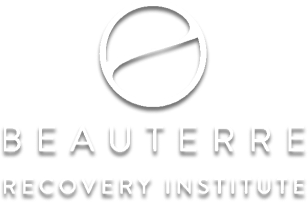For some diseases, there is simply no known cure. In such cases, a regimen of medical treatment is needed in order to sustain quality of life, or to sustain life itself. Addiction is a brain disease, diagnosed as severe substance use disorder. Can addiction be cured? Not at present, though researchers are working on it. However, even now addiction can be effectively treated.
Every Addict is Different
The massive scale of the drug problem dehumanizes addicts. These days, coroners in some rural communities are running out of body bags. National news reports cite lethal overdoses in mind-boggling numbers. But it’s important not to lose sight of the individual. Behind each overdose statistic there was a human being. Someone’s wife. Somebody’s son.
Society’s persistent stigma of addiction is another factor. We fail to mobilize to fight this disease as we do cancer, Alzheimer’s disease, and other maladies. The sniff of disapproval by others makes coping with the disease, even in recovery, more difficult for addicts. Stigma may cause addicts to keep their addiction hidden, and make them feel more reluctant to seek treatment.
What people suffering from substance use disorders (SUDs) need from those around them is cause for hope rather than judgment. With adequate treatment, life-saving hope is possible. To determine the most effective means of treatment for an individual’s specific SUDs, a professional, personalized assessment is key.
While the so-called “drug of choice” may be the same as that of another addict, every addiction is different because every addict is different. Each brings their own psychological baggage and life experience to the life-threatening situation.
Severe SUD is a form of genetically-inclined, chemically-induced mental illness. As with any disease, some individuals are more susceptible to SUD than others. In such cases, the use of drugs and alcohol triggers one’s latent genetic predisposition towards addiction. Constant craving hijacks the addict’s brain chemistry. Negative consequences ensue: classes failed, cars wrecked, relationships broken, jobs lost, health ruined. Risk of falling prey to sexual assault and other forms of brutalization increase exponentially.
Yet even after the thrill is gone and the danger is clear, it is difficult for addicts to stop using. This is where science comes into the equation.
In Search of a Cure for Addiction
Attempts to cure addiction in the U.S. extend as far back as the founding of the republic. The so-called father of addiction medicine, Dr. Benjamin Rush, was an actual Founding Father who signed the Declaration of Independence. The son of an alcoholic, Rush wanted to rid the young country of the scourge of alcoholism, writing, “a nation corrupted by alcohol can never be free.”
Rush’s fierce advocacy founded a temperance movement that led to the prohibition of alcoholic beverages over a century later. But more long-lasting were Dr. Rush’s classification of alcoholism as a disease, and his calls for “sober houses” where “drunkards” could be rehabilitated. Rush treated drunks with a primitive version of what is now called aversion therapy. The doctor would spike the patient’s alcohol with a chemical compound to induce vomiting. This would cause the alcoholic to loathe the sight and smell of alcohol, “curing” them of their craving.
Roadblocks to a Cure for Addiction
In the 21st Century, “cures” are a bit more difficult to come by than in Benjamin Rush’s day. Today’s intoxicants and our understanding of them are both much more sophisticated. Researchers and companies developing new pharmaceutical treatments for substance use disorders face a years-long regulatory review process before human trials are even allowed. Once regulators provide the green light, the trials can cost the interested parties tens of millions of dollars to conduct. The marketplace is in the distance, on a far-off horizon.
One case in point is a naturally occurring (plant-based) psychoactive substance ibogaine, which has had its champions as a cure for heroin and cocaine addiction since the early 1960s. Due to its side effects, like slowed heartbeat, ibogaine is not available legally in the U.S. Distinguished neuroscientists here developed a synthetic derivative of ibogaine, which they call 18-MC. Stephen Hurst, the President and CEO of Savant HWP, the small drug company who control the rights to 18-MC, described its effectiveness this way:
“This is the first drug that there is conclusive research data that show that it’s effective regardless of what the substance is. Which means that the drug is working at the central mechanism of the disease, which is dopamine disregulation in the reward centers in the mid-brain. … This is the same part of the brain that our fight or flight mechanism comes from — it’s very primitive. It’s common in all mammals and all substances, and certain compulsive behaviors as well . . . may start off at different ends of town, but they all end up in the town square, which is dopamine disregulation. And this is the first drug that seems to reverse that dopamine disregulation in the reward centers of the brain.”
But Hurst is experienced enough to know his promising drug will face administrative and regulatory challenges. According to his 2014 interview with BuzzFeed:
. . . Hurst [is] quick to acknowledge that, even in a best-case scenario, 18-MC isn’t likely to be a panacea. It would likely have to be administered over the course of weeks or months along with conventional rehab. But before that happens, it has to earn the FDA’s stamp of approval. And, though the outlook is positive, Hurst cautions there’s still a long way to go before 18-MC is deemed safe and effective enough for American addicts.
“I tell people it’s sort of like a journey through the Himalayas,” Hurst says of the drug development process. “You reach the top of the mountain in front of you, and you look out and see another mountain range you have to climb over. We’ve gotten up over the first mountain range. There’s at least another one beyond that.”
Effective Approaches to Addiction Treatment Await You
Even the company behind a potential substance use disorder “antidote” admits “conventional rehab” will still be a needed for the future users of its product. For those who suffer from addiction, community and a new perspective are so important to recovery — and neither will ever be available in pill form.
At Beauterre Recovery Institute, we’re hardly “conventional” in our approach. Here you will be treated as the unique individual you are. Help for your addiction is but a phone call away.
 Beauterre Recovery Institute
Beauterre Recovery Institute
